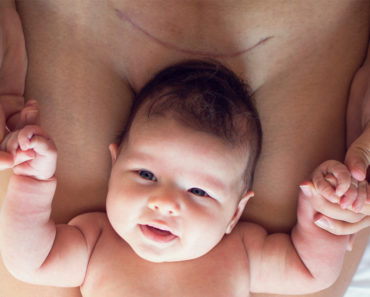Baby refusing the bottle isn’t an uncommon phenomenon. While several babies don’t accept bottles at all, some suddenly start rejecting them after being bottle-fed for some time. Bottle-feeding, in some cases, is crucial to ensure continuous feeding. Thus, if a baby refuses to be bottle-fed, identifying the reason for the refusal becomes inevitable.
This post tells you the possible reasons for the baby to refuse feeding from a bottle and ways to help them accept it.
Reasons For A Baby To Refuse The Bottle
Here are common reasons why a baby may refuse to bottle-feed.
- The baby has been recently weaned, and they still want to breastfeed. It often happens due to nipple confusion when a baby experiences a difference in sucking action (1) (2).
- The baby isn’t hungry enough to call for a feed. Usually, a hungry baby will show hunger cues, such as sticking their tongue out, putting hands in their mouth, or crying.
- The baby is feeling uncomfortable or unwell to bottle-feed for the moment. A baby with teething troubles or colic is likely to reject bottle-feeding, just as they may refuse to breastfeed (3).
- The baby is being held in an uncomfortable position, making the baby feel irritated, hence bottle refusal.
- The baby dislikes the flavor or texture of the formula or expressed breast milk. Another reason could be that the milk being served is too warm.
- The bottle shape isn’t comfortable for the baby to hold, or the baby doesn’t like the nipple texture.
- The baby had a bad experience with a bottle earlier. For instance, excess milk flow may cause the baby to choke and cough suddenly.
Determining the reason for refusal could resolve the issue. If you are unsure why your baby is refusing a bottle, take the advice of a pediatrician or a lactation consultant.
Tips To Help The Baby Accept Bottle-Feeding
Here are some tips that may help your baby accept bottle-feeding with ease (4) (5).
- Start bottle-feeding gradually and give your baby ample time to adjust. Several babies reject the bottle initially, but patience and persistent efforts help them accept the bottle eventually.
- Feed with a bottle when the baby is hungry and calm. Practicing bottle-feeding with a calm and rested baby is advisable than with the one who is too hungry and fussy. Trying to bottle-feed fussy babies may irritate them further and sabotage your efforts.
- Change the bottle and nipple sizes and shapes to check which ones work the best for your baby. For instance, size-one nipples have a small hole, which may be suitable for a six-month-old but not for older babies.
- Do not put the bottle’s nipple directly into the baby’s mouth. Let them latch on to the bottle nipple themselves. After this, you can gently stroke their cheeks and make them feel comforted, just as you would do while breastfeeding.
- Try altering baby formula and see if your baby likes any particular formula more than others. Consult a pediatrician before making changes so that you make the right choice.
- Keep changing the milk temperature and see what your baby likes. While some babies prefer warm milk, some others like milk at room temperature. If the milk temperature seems to bother a teething baby, you may chill the bottle’s nipple to soothe their sore gums.
- Experiment with the feeding position and see where your baby’s comfort lies. You can try different feeding techniques and give the baby enough time to try out each method. Also, avoid distractions, such as music, television, and toys to make the baby acquaint with a feeding technique better.
- Move around while feeding the baby. Gentle movement, swaying, and bouncing may make some babies take the bottle comfortably. Also, some babies tend to like bottle-feeding with skin-to-skin contact, just like in breastfeeding.
- Let someone else feed the baby. Some babies may associate only breastfeeding with their mother and may become confused when the mother offers a bottle instead. You can enlist the help of a family member or caregiver who can bottle-feed. It may make the baby associate bottle-feeding with that person and accept the bottle more readily.
- Smell and taste your breast milk or formula. Sometimes, a baby may refuse to drink breast milk or formula due to changes in its taste. Check the odor and taste of the milk before serving it to your baby.
These methods could help the baby acquaint with the bottle better. If your baby continues to refuse the bottle, you may consult a pediatrician.
When To See A Doctor?
Temporary refusal to bottle-feeding is nothing to worry about. If the baby persistently refuses the bottle, you may consult a pediatrician to rule out eating disorders or illnesses that may have caused a loss of appetite.
Consult a doctor if your baby shows any of the following symptoms along with persistent refusal to bottle-feed.
- Fussiness and anxiety
- Recurrent fever
- Vomiting
- Diarrhea
- Constipation
- Constant crying or colic
- Difficulty breathing
A timely diagnosis of any eating disorders or illness can help prevent long-term effects, such as nutritional deficiencies, poor weight gain, developmental delay.
The refusal to bottle-feed is a common occurrence. Babies can temporarily reject a bottle for several reasons that you can resolve with persistent efforts, continuous support, and undivided care. In the case of older babies, you may try cup-feeding with sippy cups. If you feel the baby isn’t feeding properly, even from a bottle, consult a doctor.

































